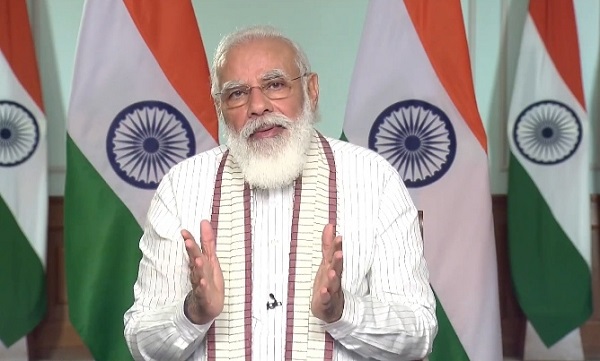
United Nations, (Samajweekly) Ahead of India’s turn on September 26 at the United Nations General Assembly general debate, this year’s ‘non-assembly’ of world leaders on New York’s giant stage and the utter absence of gridlock and spectacle in Manhattan has turned the spotlight on the art of the pre-recorded 15 minute pitch at a time of global Zoom fatigue combined with the anxious wait for a still elusive COVID-19 vaccine.
Two days in, more than 200 world leaders’ teleprompter-led speeches have already rolled from the UNGA production control headquarters.
India’s prime minister Narendra Modi is the first speaker on Saturday, September 26; the session begins at 9 a.m. EST (6.30 p.m. IST).
In the physical version of the UNGA, some leaders just know how to read the room and some don’t. Same is the case with the virtual version of this year’s muted UNGA. With no clarity on how speeches at the UNGA are going to make any difference to the human world’s pain points right now, leaders with a more intimate understanding of quarantine culture are taking a whole new approach to their pandemic edition UN address. They’re giving it a buzz cut, because non-verbal overload is a thing.
Earlier this week, Modi wasted no time in rapping the United Nations for its “outdated structures” and “crisis of confidence”. India’s message was clear – that at 75, the UN still reflects the world as it was in the mid 1940s – packed with the five veto-wielding permanent members of the Security Council – rather than one in which India deserves a spot. In many ways, the format of the 2020 United Nations General Assembly mirrors how the lion’s share of member nations see the state of its much hyped reform effort: Virtual, not very real.
On Monday, Modi took less than four minutes, hit all the buttons he wanted to and logged off. Without a live audience to set up the timing and the tone and discover moments that were never in the script, world leaders who adapted to video calls early this year are parading their art of the pre-recorded escalator pitch played out from a master control room in New York City.
This year US president Donald Trump, one of the first speakers on the first day of the UNGA General Debate, took just 10 min and 45 seconds. Some, like France’s Macron, went the distance, speaking for 48 minutes. Last year, Pakistan prime minister Imran Khan spoke for more than 50 minutes.
This year, the pandemic has forced leaders to take an increasingly worm’s eye view of the world in their prepared remarks.A Countries have been asked to stick to a voluntary 15 minute limit but are not being cut off if they go beyond the time limit, spokesperson for Volkan Bozkir, president of the General Assembly, confirmed today. Because some spoke for too long at the commemorative session on Monday, only 122 countries got a chance to speak on that day, 55 speakers are still waiting to talk about the UN’s 75th birthday and the global body is working out another swing slot to accommodate them.
Last year, Modi’s speech lasted about 17 minutes. His address began with Indians’ access to basic infrastructure, the country’s sanitation campaign, the construction of 110 million toilets in just five years, India’s health assurance program, financial inclusion for her citizens, the effort to turn away from single use plastic and towards renewable energy, shifted to the country’s rich cultural heritage, a sense of shared joy in the successes of other emerging economies and closed with a reminder to the United Nations: “We belong to a country that has given the world not war but Buddha’s message of peace. The lack of unanimity amongst us on the issue of terrorism, dents those very principles, that are the basis for the creation of the U.N.”
In 2019, Modi quoted a Tamil poet from 3,000 years ago saying “we belong to all places, and to everyone. This sense of belonging beyond borders is unique to India”.
This time, it’s the virus that belongs to all lands and everyone.
Never before has the world dealt with the situation where more than seven billion people are waiting for a vaccine at the same time.
UN Secretary General Antonio Guterres has been at pains to frame the platform of the UN’s 75th birthday as a “global conversation”. Instead, what the world audience is witnessing on its screens is world leaders head butting each other for a disjointed global response to a microscopic virus.
More than 150 countries are part of COVAX, in which richer countries agree to invest in potential vaccines and help finance access for poorer countries. But three veto wielding powers US, China and Russia are not involved in that effort, showing how the UN at 75 is far from being a global uniter.
“As countries go in different directions, the virus goes in every direction” Guterres said in his grim opening talk, pointing to the more than 30 million infections worldwide.








